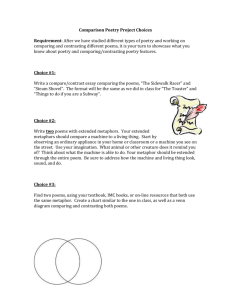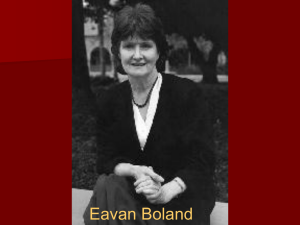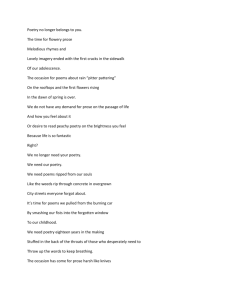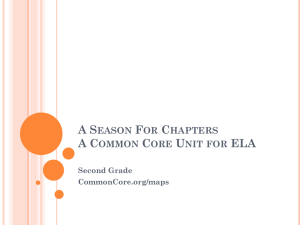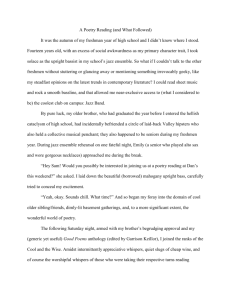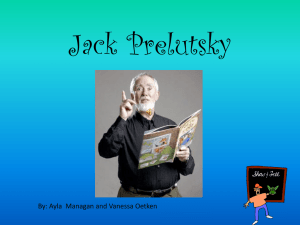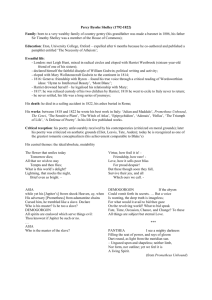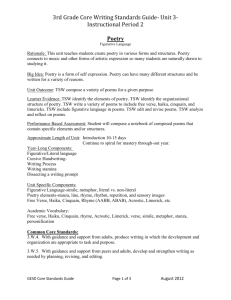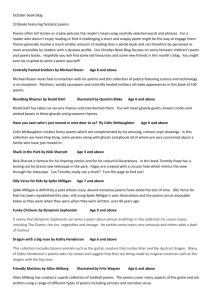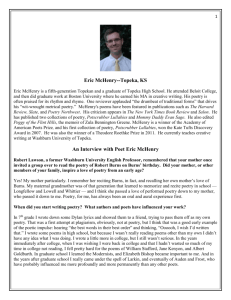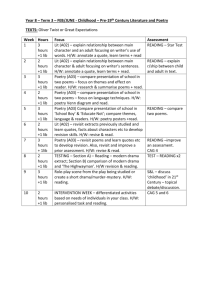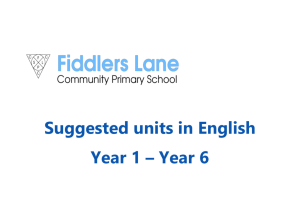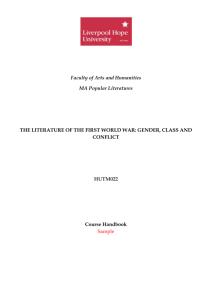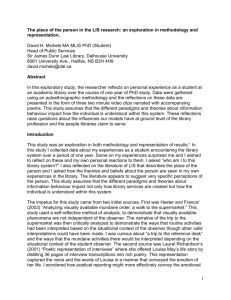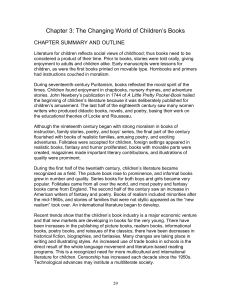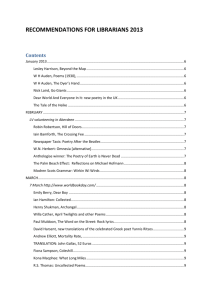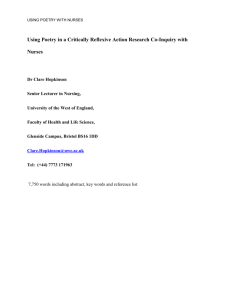Year 5 Moorfield – Forces - Savile Park Primary School
advertisement
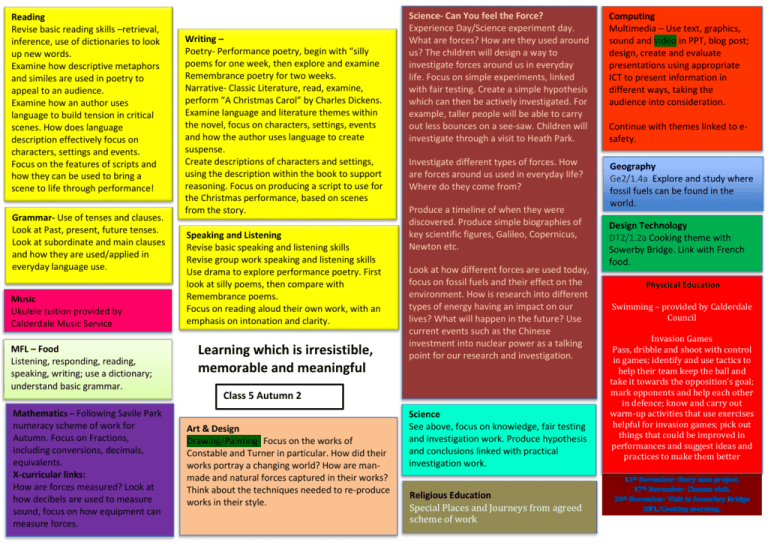
Reading Revise basic reading skills –retrieval, inference, use of dictionaries to look up new words. Examine how descriptive metaphors and similes are used in poetry to appeal to an audience. Examine how an author uses language to build tension in critical scenes. How does language description effectively focus on characters, settings and events. Focus on the features of scripts and how they can be used to bring a scene to life through performance! Grammar- Use of tenses and clauses. Look at Past, present, future tenses. Look at subordinate and main clauses and how they are used/applied in everyday language use. Music Ukulele tuition provided by Calderdale Music Service MFL – Food Listening, responding, reading, speaking, writing; use a dictionary; understand basic grammar. Mathematics – Following Savile Park numeracy scheme of work for Autumn. Focus on Fractions, including conversions, decimals, equivalents. X-curricular links: How are forces measured? Look at how decibels are used to measure sound, focus on how equipment can measure forces. Writing – Poetry- Performance poetry, begin with “silly poems for one week, then explore and examine Remembrance poetry for two weeks. Narrative- Classic Literature, read, examine, perform “A Christmas Carol” by Charles Dickens. Examine language and literature themes within the novel, focus on characters, settings, events and how the author uses language to create suspense. Create descriptions of characters and settings, using the description within the book to support reasoning. Focus on producing a script to use for the Christmas performance, based on scenes from the story. Speaking and Listening Revise basic speaking and listening skills Revise group work speaking and listening skills Use drama to explore performance poetry. First look at silly poems, then compare with Remembrance poems. Focus on reading aloud their own work, with an emphasis on intonation and clarity. Learning which is irresistible, memorable and meaningful Science- Can You feel the Force? Experience Day/Science experiment day. What are forces? How are they used around us? The children will design a way to investigate forces around us in everyday life. Focus on simple experiments, linked with fair testing. Create a simple hypothesis which can then be actively investigated. For example, taller people will be able to carry out less bounces on a see-saw. Children will investigate through a visit to Heath Park. Computing Multimedia – Use text, graphics, sound and video in PPT, blog post; design, create and evaluate presentations using appropriate ICT to present information in different ways, taking the audience into consideration. Investigate different types of forces. How are forces around us used in everyday life? Where do they come from? Geography Ge2/1.4a Explore and study where fossil fuels can be found in the world. Produce a timeline of when they were discovered. Produce simple biographies of key scientific figures, Galileo, Copernicus, Newton etc. Look at how different forces are used today, focus on fossil fuels and their effect on the environment. How is research into different types of energy having an impact on our lives? What will happen in the future? Use current events such as the Chinese investment into nuclear power as a talking point for our research and investigation. Class 5 Autumn 2 Art & Design Drawing/Painting- Focus on the works of Constable and Turner in particular. How did their works portray a changing world? How are manmade and natural forces captured in their works? Think about the techniques needed to re-produce works in their style. Science See above, focus on knowledge, fair testing and investigation work. Produce hypothesis and conclusions linked with practical investigation work. Religious Education Special Places and Journeys from agreed scheme of work Continue with themes linked to esafety. Design Technology DT2/1.2a Cooking theme with Sowerby Bridge. Link with French food. Physcical Education Swimming – provided by Calderdale Council Invasion Games Pass, dribble and shoot with control in games; identify and use tactics to help their team keep the ball and take it towards the opposition’s goal; mark opponents and help each other in defence; know and carry out warm-up activities that use exercises helpful for invasion games; pick out things that could be improved in performances and suggest ideas and practices to make them better
